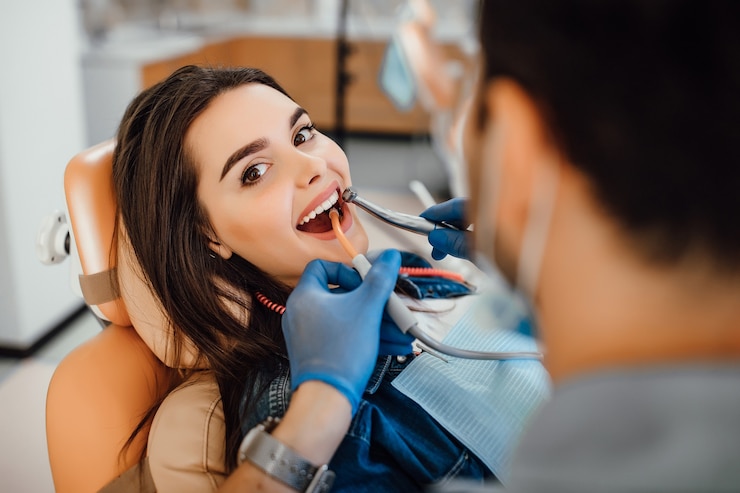Health
Eating eggs helps heart health

Their consumption included positive associations for apolipoprotein A1, acetate, mean HDL diameter, and lipid profiles, and inverse associations for total cholesterol and small VLDL cholesterol esters.
Cardiovascular diseases (CVD) have always been a major public health challenge and are the leading cause of death and disability worldwide. In recent decades, with concern about the burden of this type of pathology, researchers have not only focused on modifiable risk factors, such as smoking, alcohol consumption, physical activity, and diet, but have also provided increasing attention to the internal biological mechanism.
Eggs are one of the richest sources of dietary cholesterol and also contain a wide variety of essential nutrients and bioactive compounds, including high-quality protein, fat-soluble B vitamins, phospholipids, and choline. Evidence for the association between eggs and CVD remains controversial in both observational studies and prospective population-based Western studies, with some studies showing a positive association and others finding none.
To better understand the relationship between egg consumption and cardiovascular disease risk, researchers at Peking University (China) have conducted a population-based study exploring it.
They selected 4,778 participants from the China Kadoorie Biobank, of whom 3,401 had cardiovascular disease and 1,377 did not. They used directed nuclear magnetic resonance to measure 225 metabolites in plasma samples taken from the participants’ blood. Of these metabolites, they identified 24 that were associated with the levels of egg consumption declared by the participants.
Analyzes showed that individuals who ate a moderate amount of eggs had higher levels of apolipoprotein A1 and especially had more large HDL molecules in their blood, which help remove cholesterol from blood vessels and thus protect against blockages that can lead to heart attacks and strokes.
In addition, they identified 14 metabolites related to this type of pathology. They found that participants who ate fewer eggs had lower levels of beneficial metabolites and higher levels of harmful ones, compared to those who ate them more regularly.
The results suggest that eating up to one egg a day may help reduce the risk of developing cardiovascular disease.

Health
The Benefits of Working with Health Insurance Brokers for Your Coverage Needs

Expert Guidance Through Complex Options
Navigating health insurance can be an overwhelming process due to its array of policy types, evolving legislation, and complex terminology. Working with health insurance brokers Phoenix, AZ empowers you with a knowledgeable partner who is trained to make sense of intricate plan details and continuous regulatory shifts. Rather than struggling through complex documents and sales jargon, you receive clear, actionable advice from an expert who has your best interests in mind. Whether you’re choosing individual, family, or group coverage, brokers provide a perspective that goes far beyond generic internet searches.
Unlike captive agents who only recommend their own company’s products, independent health insurance brokers serve your needs first. They take the time to analyze your specific requirements and educate you about the essential features, limitations, and advantages of the plans. Their years of experience and up-to-date industry knowledge spare you hours of research, while also helping you sidestep pitfalls that could cost you in the long run.
Access to a Wide Range of Plans
By partnering with brokers, you are not limited to one insurer’s options—brokers draw from a vast network of providers, each offering distinct plans. This extended reach significantly increases your chances of finding a solution that meets both your health needs and financial constraints. Whether it’s high-deductible plans, comprehensive family packages, or specialized group benefits for employers, brokers offer access to health insurance products you may never find on your own.
They provide detailed side-by-side comparisons of premiums, deductibles, out-of-pocket maximums, and coverage nuances. This objective analysis reveals plans that are both affordable and aligned with your medical priorities. Brokers adeptly filter out unsuitable or unnecessarily expensive policies, saving you time and money as you focus only on the most promising options available in the marketplace.
Personalized Recommendations
No two people have identical health concerns or financial needs, making “cookie-cutter” plans particularly risky. Health insurance brokers take an individualized approach, investing time to get to know your unique health background, medication usage, doctor preferences, and budget. By closely assessing your priorities and concerns, we suggest coverage options purpose-built for your specific circumstances, ensuring you receive robust protection and meaningful value, rather than an off-the-shelf product that may leave you exposed.
As your advocate, a broker can identify gaps in your existing coverage and suggest policy riders and adjustments to prevent unexpected expenses. This tailored guidance is especially valuable for families juggling multiple healthcare needs or for individuals managing chronic illness, offering peace of mind and cost control that standard plans seldom deliver.

Cost Savings and Budget Management
Health insurance is a significant recurring expense, making affordability and budget control a top priority for most clients. Brokers leverage their industry expertise to identify policies that strike a balance between comprehensive protection and cost-effectiveness. By leveraging their network and market connections, they may negotiate lower rates or secure discounts that are unavailable to the average consumer. Additionally, brokers can advise on strategic approaches such as health savings accounts or optimal deductible arrangements that minimize your out-of-pocket spending while maintaining strong coverage.
They break down not just the headline premiums but also the total cost of ownership, including copays, coinsurance, and any hidden charges, so you understand your actual yearly expense. This aligns with guidance from HealthCare.gov, which emphasizes evaluating the full spectrum of costs when choosing a plan. Their transparent approach ensures there are no unpleasant surprises, empowering you to make budget-conscious decisions with confidence.
Assistance with Enrollment and Paperwork
The process of enrolling in health insurance or renewing a policy can be daunting, with numerous forms, compliance checks, and strict deadlines to meet. Mistakes or omissions can lead to coverage gaps or penalties. Health insurance brokers lighten this administrative burden, guiding you through each step of the enrollment process and reviewing your paperwork for accuracy. They assist in gathering the proper documentation and ensure your applications meet all eligibility criteria, reducing stress and the risk of costly errors.
This hands-on support is especially crucial during open enrollment windows or for businesses managing employee group plans. With a broker’s help, you can move quickly and confidently, staying on track for timely and trouble-free coverage activation.
Ongoing Support and Advocacy
The value of a health insurance broker extends long after you sign up for a policy. Throughout the year, brokers are available to help you with claims processing, resolve billing disputes, and make adjustments if your needs or circumstances change. In times of uncertainty—whether it’s a disputed claim or out-of-network medical event—a broker acts as your advocate, helping cut through red tape so you can focus on your health instead of paperwork.
This proactive, ongoing partnership ensures that you always have a knowledgeable professional on your side, optimizing your coverage and addressing challenges as they arise. Such ongoing support builds lasting peace of mind and maximizes the benefits from your health insurance plan.
Ensuring Compliance with Regulations
Health insurance is governed by complex and ever-changing federal and state regulations, such as those related to the Affordable Care Act (ACA). Even minor oversights can result in costly penalties or lapses in coverage. Brokers stay current on the latest legal developments and policy changes, proactively informing you when adjustments are needed to maintain compliance. Their vigilance and expertise shield you from regulatory pitfalls, safeguarding both your benefits and your finances.
For business owners, this guidance is especially valuable, as compliance missteps can have serious repercussions. A trusted broker helps your organization stay ahead of changes in the law, providing essential peace of mind as the healthcare landscape continues to evolve.
Time Efficiency and Reduced Stress
The process of choosing and managing health insurance can be highly time-consuming, especially for those without experience in the industry. By engaging a broker, you transform a complex and intimidating project into a smooth, streamlined experience. Brokers handle the legwork, from initial research to enrollment and ongoing maintenance, saving you countless hours and shielding you from frustration. According to Forbes, health insurance brokers not only simplify the process but also help ensure that you’re choosing the most cost-effective and comprehensive coverage for your needs.
With their guidance, you spend less time deciphering plan options and more time focusing on your health and your family. The reduced stress and improved clarity that come from working with a broker are benefits you’ll appreciate from the first consultation onward.
Conclusion
Working with a health insurance broker provides you with valuable expertise, a wide range of options, and reliable support that’s difficult to find when navigating the system on your own. Brokers help you align your coverage with both your healthcare needs and financial situation, offering clear guidance through often confusing insurance rules. With their ongoing assistance, you gain a trusted partner committed to your long-term health and financial protection.
To further explore how brokers can assist you or to gain a deeper understanding of their role, check out this in-depth guide or review the key advantages outlined by the official source. These resources shed light on how brokers help streamline the insurance process and enhance your overall experience.
Health
Ketamine Therapy: A Path to Healing

Ketamine therapy is a hopeful treatment alternative for mental health concerns such as anxiety, PTSD, and depression. Unlike traditional treatments, ketamine works rapidly by affecting neurotransmitters linked to mood regulation. Administered in controlled medical settings, it has shown effectiveness for individuals resistant to conventional therapies. Patients often experience significant relief after just a few sessions, with benefits including improved mood, reduced suicidal thoughts, and enhanced emotional resilience. Regular monitoring and follow-up care ensure safety and long-term effectiveness. While not a one-size-fits-all solution, ketamine therapy provides hope for those seeking alternative treatments. With continued research and careful administration, it is a transformative option for mental health healing and improved quality of life.
What is Ketamine Therapy?
In recent years, Ketamine Therapy in Utah has been at the forefront of revolutionary treatments for mental health disorders. Initially deployed as a potent anesthetic during surgeries, ketamine’s role has astonishingly expanded in the medical field. Its unique mechanism provides relief to individuals coping with depression, anxiety, and PTSD, notably those who have not benefitted from standard interventions. This therapy represents a beacon of hope, offering life-changing possibilities for patients who have encountered a dead-end with traditional antidepressants.
This innovative application of ketamine as a therapeutic agent highlights the evolving landscape of mental health care. Straying from conventional pharmacotherapy, ketamine is pioneering a renewed focus on rapid recovery, especially vital for those in desperate need of immediate relief. The accessibility of this treatment underscores the importance of adapting and broadening mental health approaches to meet diverse patient needs more effectively.
How Does Ketamine Work?
The primary way that ketamine works to treat mood disorders is by interacting with the brain’s NMDA receptor, which is essential for mood regulation and synaptic plasticity. Unlike traditional antidepressants that often require prolonged periods to manifest effects, ketamine can initiate rapid symptom relief. This fast-acting quality is particularly valuable for patients who may be experiencing acute episodes of depression or suicidal ideation, where timely intervention is crucial for altering life-threatening situations.
The intricate workings of ketamine provide insight into its potential beyond currently available treatments. By influencing the brain’s neural pathways directly, ketamine offers a unique approach to managing complex mental health issues. If readers want to learn more about how ketamine affects brain function and how it affects mental health therapies, the resource on how ketamine might help depression offers a comprehensive exploration of its biochemical impact.
The Benefits of Ketamine Therapy
- Rapid Relief: Ketamine is recognized for its fast-acting properties in reducing symptoms of major depressive disorders and anxiety, often providing relief within hours rather than weeks, as seen with traditional antidepressants. When other therapies have failed, this quick effect is beneficial for those who are in extreme distress or contemplating suicide since it provides them with instant relief. By targeting glutamate pathways in the brain, ketamine helps restore neural connections, improving mood and cognitive function. This quick response can be life-changing for patients in crisis, granting them hope and stability while long-term treatment strategies are developed. Its potential as a breakthrough therapy continues to drive research and clinical interest.
- Reduction in Suicidal Thoughts: One of ketamine’s most significant advantages is its ability to reduce suicidal ideations, making it a vital tool in addressing severe mental health crises. In contrast to conventional antidepressants that can take weeks to be effective, ketamine is known to deliver quick mood improvements, typically within hours. This fast-acting relief provides a critical window for individuals in distress, allowing mental health professionals to implement broader therapeutic interventions, such as counseling and long-term medication strategies. Studies suggest that ketamine’s impact on brain chemistry helps regulate mood and alleviate severe depressive symptoms, offering hope and immediate support for those at high risk of self-harm or suicide.
- Minimal Side Effects: Initially recognized mainly as a potent anesthetic, ketamine has gained attention for its therapeutic benefits in mental health treatment. It has been discovered to have fewer serious adverse effects than many conventional antidepressants when taken at carefully monitored dosages, which makes it a more bearable choice for a large number of people. Unlike traditional medications that often lead to weight gain, sexual dysfunction, or emotional blunting, ketamine’s side-effect profile is generally milder. This reduced burden allows individuals to focus on their recovery without the added distress of managing uncomfortable medication-induced symptoms. As a result, patients may experience a more positive and sustainable treatment journey with improved overall well-being.
The broad spectrum of benefits associated with ketamine therapy stands as a testament to its role as a transformative treatment in mental health. By offering an alternative pathway to resilience and recovery, ketamine is rewriting the narratives traditionally associated with mental health treatment, providing a much-needed spark of hope for those feeling trapped by their conditions.
Who Can Benefit from Ketamine Therapy?
For those who have tried conventional treatment options without sufficient results, ketamine therapy is beneficial. It has shown promise for patients experiencing treatment-resistant depression, severe anxiety, PTSD, and, sometimes, chronic pain. Each individual’s response to ketamine can vary, often requiring a medical evaluation to determine appropriateness and to tailor treatments correctly. This highlights the importance of personalized care plans, which help maximize therapeutic outcomes.
Decisions around ketamine therapy must be informed by professional assessments, paving the way for a personalized approach that ensures patients can reap maximum benefits from this innovative treatment. By acknowledging unique patient needs and histories, ketamine therapy exemplifies the movement toward individualized mental health care.
Success Stories
The transformative power of ketamine therapy is illuminated through powerful testimonials from individuals who have experienced its benefits firsthand. For many patients, ketamine has facilitated a return to a fulfilling and hopeful life—an outcome that seemed unattainable through more conventional means. These success stories emphasize the profound clinical improvements observed and the psychological upliftment they provide, restoring hope and vitality to those who have long struggled.
Such narratives paint a compelling picture of ketamine therapy’s potential and offer inspiration to those still seeking effective treatment options. To explore these personal transformations, readers can refer to the success stories documented by renowned publications like Psychology Today that showcase the real-world impact of ketamine.
Potential Risks and Side Effects
Despite its promising benefits, ketamine therapy is not devoid of risks, which behooves a cautious and informed approach. Common side effects can include sensations of dissociation, temporary increases in blood pressure, and, in some rare cases, the potential for developing dependency. To mitigate these risks, ketamine treatment must be administered, monitored, and supervised by qualified healthcare practitioners in a controlled setting.
Vigilant oversight and professional care during administration ensure that ketamine’s therapeutic potential can be safely tapped. By carefully balancing its benefits against possible drawbacks, healthcare providers can optimize treatment efficacy while safeguarding patient well-being.
Getting Started with Ketamine Therapy
- Consultation: The first step in the process is an extensive consultation with a licensed mental health specialist, during which they assess the patient’s symptoms, medical background, and treatment objectives. Based on the person’s unique mental health state, this evaluation aids in determining whether ketamine therapy is a good choice. The expert considers past treatments, potential risks, and overall well-being to ensure the therapy aligns with the patient’s needs, providing a safe and effective approach to mental health care.
- Professional Administration: Ketamine treatment should be managed by highly trained clinicians with in-depth knowledge of its medical applications, effects, and potential risks. Their expertise ensures precise dosing, appropriate patient monitoring, and adherence to safety protocols. Proper oversight minimizes complications, enhances treatment effectiveness, and ensures patient well-being. By following established administration guidelines, experienced professionals can maximize ketamine’s therapeutic benefits while mitigating any adverse effects, providing patients with a safe and controlled treatment experience.
- Follow-up Care: Ongoing therapy sessions and regular follow-ups are crucial in tracking patient progress, identifying improvements or setbacks, and refining treatment plans. These sessions provide a structured approach to addressing evolving patient needs, ensuring timely interventions and personalized care. Additionally, consistent follow-ups foster a strong support system, reinforcing treatment adherence and promoting overall well-being. By prioritizing continuous monitoring, healthcare providers enhance patient safety, optimize outcomes, and contribute to long-term recovery and stability.
Embarking on ketamine therapy requires a commitment to structured and professional management, which underpins a successful therapeutic experience and fosters effective long-term outcomes. These steps ensure a supportive path toward mental wellness, paving the way for hope and healing.
Future of Ketamine Therapy
As research into ketamine therapy advances, its potential utility in mental health treatment continues to grow. Emerging studies are uncovering new applications and refining their role in clinical settings. The progressive understanding of its mechanisms and broader applicability indicates a promising outlook on ketamine becoming a staple in treatment paradigms for complex mental illnesses. This evolution suggests a significant paradigm shift in addressing mental health challenges, representing a beacon of hope for those seeking innovative solutions.
Keen interest from the medical and scientific community signals an optimistic future for ketamine therapy in redefining treatment standards and expanding mental health care frontiers. By building upon current insights, healthcare professionals continue to explore ways to harness ketamine’s full potential, offering brighter prospects for all impacted by mental health disorders.
Health
The Link Between Stress Fractures and Daily Routines Addressed by a Foot and Ankle Specialist

Stress fractures might sound like something only athletes deal with, but everyday routines can play a big role in their development. Whether it’s standing for hours at work or pushing through a long walk in the wrong shoes, your feet can take a beating. That’s where insights from a foot and ankle specialist come in handy, helping you spot trouble early and keep your feet healthy.
Understanding How Repetitive Strain Impacts Bone Health
Your bones are incredibly strong, but they aren’t indestructible. Repeated stress from daily activities like walking, standing, or running can weaken the tiny structures within the bone, leading to stress fractures. Unlike traumatic injuries, these fractures develop gradually, making them harder to detect without professional help.
A foot and ankle specialist can assess how your routines contribute to stress on your bones and recommend changes to reduce that strain. They’ll consider factors like footwear, activity levels, and even how your body mechanics affect the distribution of weight on your feet. By addressing these details, you can avoid long-term damage while staying active and comfortable.
Identifying Common Daily Activities That Contribute to Stress Fractures
Some everyday habits put more pressure on your feet than you might think. For example, standing for long hours on hard surfaces or walking on uneven ground can subtly but consistently wear down your foot bones. Even carrying heavy items regularly, like groceries or work equipment, increases the load on your feet, making them more prone to stress fractures.
A foot and ankle specialist near me can help pinpoint the specific activities in your routine that might be causing issues. They don’t just stop at identifying the problem—they provide actionable solutions, such as adjusting your posture, using supportive footwear, or incorporating rest periods into your day. These small changes can make a big difference in preventing fractures and improving foot health.
Evaluating the Impact of Standing or Walking for Extended Periods
For those whose jobs require them to stand or walk for most of the day, stress fractures are a common risk. Prolonged periods of standing can compress the bones in your feet, while continuous walking puts repetitive strain on the same areas. Over time, this can lead to tiny cracks that, if ignored, worsen into painful fractures.
A foot and ankle specialist will examine your work environment and daily habits to determine how they impact your foot health. They might suggest shock-absorbing insoles, breaks to elevate your feet, or even exercises to strengthen the muscles supporting your arches. These tailored recommendations go a long way in keeping your feet resilient despite demanding routines.
Recognizing the Signs of Overuse in High-Impact Routines
High-impact activities like jogging, sports, or fast-paced work can significantly strain your feet and ankles. Stress fractures often start with subtle symptoms—maybe a persistent ache or tenderness in a specific area. These are easy to dismiss until the pain becomes severe, at which point recovery may take longer.
Seeing a foot and ankle specialist near me early can help identify these warning signs and address them before they escalate. Specialists use advanced imaging and assessments to uncover hidden fractures or weaknesses. With early detection, you can make necessary adjustments to your routine and avoid prolonged downtime from your favorite activities.
Addressing Improper Posture and Its Effect on Foot Stress
Poor posture doesn’t just affect your back or shoulders—it also changes how weight is distributed across your feet. If your posture causes uneven pressure, certain parts of your feet bear more load than they’re designed for, increasing the likelihood of fractures. This is especially true if you’re on your feet for long stretches without supportive footwear.
A foot and ankle specialist can evaluate your posture and identify any misalignments contributing to foot stress. They might recommend posture corrections, orthotics, or exercises that improve alignment and reduce unnecessary strain. These adjustments not only prevent fractures but also improve overall comfort and mobility.
Exploring Recovery Strategies for Work-Related Stress Injuries
If you’ve already experienced a stress fracture, recovery can be tricky while managing a busy work schedule. Rest is essential, but there are other steps you can take to heal faster and reduce the chance of re-injury. Treatments like custom braces, physical therapy, or gradual return-to-activity plans can make the process smoother.
A foot and ankle specialist will create a personalized recovery plan that fits your lifestyle. Whether it’s helping you stay mobile with the right support or advising on ways to adjust your routine temporarily, their expertise ensures you get back on your feet—literally—without risking further damage.
Offering Preventative Care Solutions for Active Lifestyles
Staying active is important, but it also increases the need for preventative care to keep your feet healthy. Regular check-ins with a foot and ankle specialist can catch early signs of trouble before they turn into stress fractures. Preventative strategies might include proper warm-ups, choosing the right footwear, or strengthening exercises tailored to your activities.
By working with a foot and ankle specialist near me, you can maintain your active lifestyle while reducing the risks of injuries. Preventative care doesn’t just keep you pain-free—it also enhances your performance and overall well-being, ensuring your daily routines and hobbies remain enjoyable and stress-free.

 Travel2 years ago
Travel2 years agoPractical And Essential Car Interior Accessories To Add Comfort And Convenience To Your Drive

 Business2 years ago
Business2 years agoTop Reasons Why you Need to Consider Outsourcing Real Estate Photo Editing

 Business2 years ago
Business2 years agoDead And Co Setlist What They Played At The Gorge Amphitheatre

 Featured2 years ago
Featured2 years agoHow to Make a Sports Career in India

 Health2 years ago
Health2 years agoGarlic Is The Best Vegetable To Treat Heart Problems

 Sports2 years ago
Sports2 years agoHow to watch the ETSU game -What are the benefits of watching the ETSU game?

 Health2 years ago
Health2 years ago5 Reasons to Choose Turkey for Dental Treatments

 Travel2 years ago
Travel2 years agoSpectacular Hot Air Balloon Rides in Goa